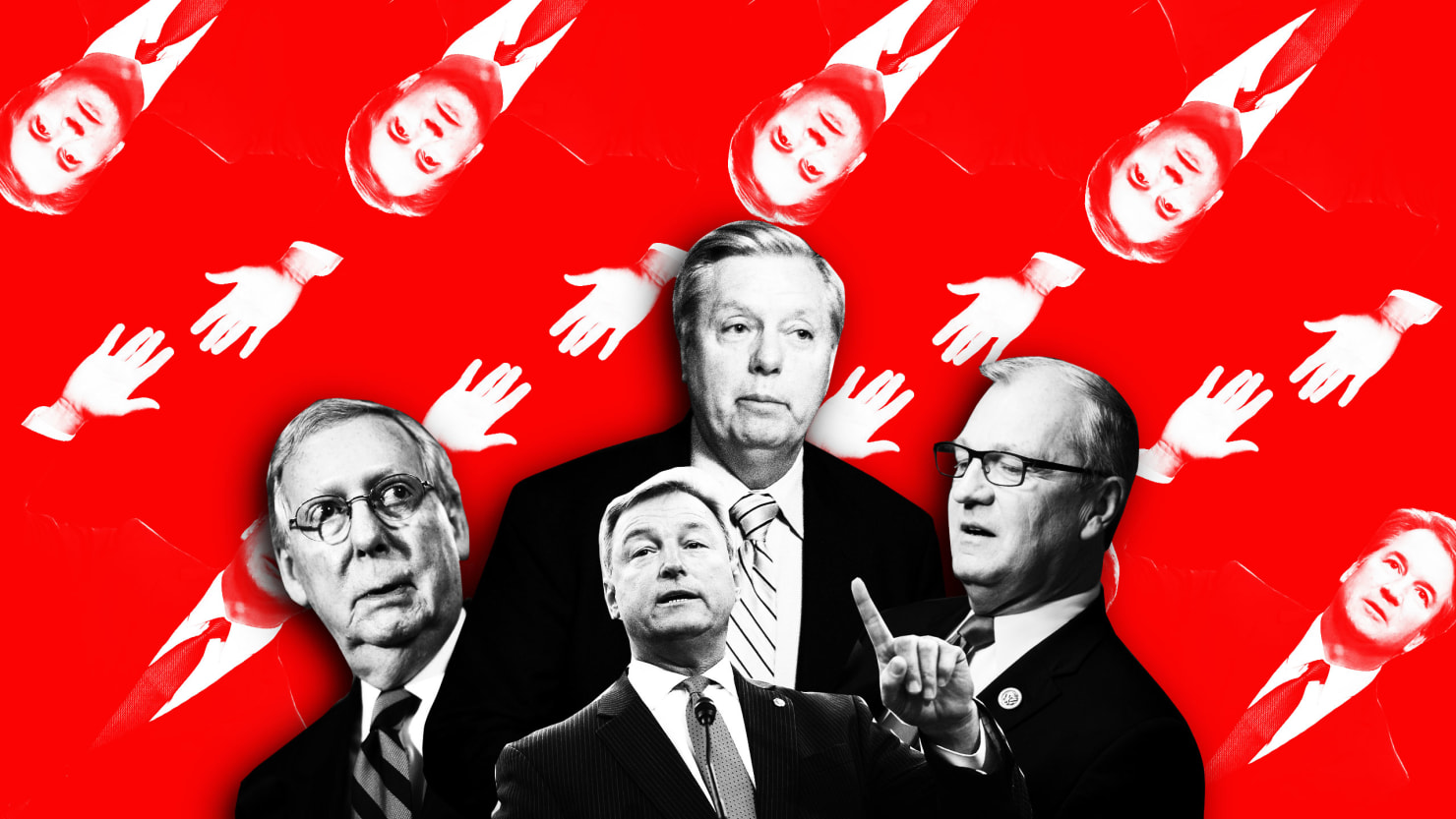
i>Behind the sordidness of the case and the White House effort to save Kavanaugh is the Republicans’ fear of doing badly in the midterm congressional elections.
Unless one is manifestly inclined to see conspiracies behind every problem, something Donald Trump is quite keen on doing, the future of Judge Brett Kavanaugh is moving further and further away from the Supreme Court, as the number of sexual assault accusations against him keeps increasing.* It’s fairly unlikely that there’s a Democratically crafted political “con job” behind the allegations of Christine Blasey Ford and four other women, and it’s also fairly unlikely that Kavanaugh will emerge unscathed from the ordeal, no matter how much he denies his guilt and proclaims his innocence.
Though the most reactionary media may see traces of surrealism and even politics-gone-to-hell in this episode, the sensitivity that is running high over sexual assault cases, as well as a shameful precedent – Anita Hill’s accusations regarding Clarence Thomas in 1991, which didn’t stop him from being confirmed to the Supreme Court – are working against the nominee. Even Trump’s bravado in presenting the #MeToo movement as “very dangerous” for powerful men reduces Kavanaugh’s room for maneuver, since Trump himself is suspected of having bought the silence of two women.
Behind the sordidness of the case and the White House efforts to save the suspect, or accused, is the Republicans’ fear of doing badly on Nov. 6 – the date of the midterm congressional elections – and losing their majority in one of the two houses of Congress, something that Trump’s team sees as nothing less than a potential catastrophe, because in such a situation, the president would have to stop shooting everything that moves, or otherwise opt for an open war with the legislative branch, a war whose outcome would not be clear.
In the long term, what’s at stake is the consolidation of a conservative majority on the Supreme Court (justices hold their position for life), a goal the Republican Party has been chasing ever since Barack Obama’s administration began winding down. In a divided society like America’s, under the authority of a president who retains the support of most of his 2016 electorate but has an approval rating of under 40 percent in national polls, it would be a huge feat to make it to the November midterms with Kavanaugh confirmed. This would also be the triumph of an inward-looking, grandiloquent and ultra-conservative part of the country, whose brand of nationalism stunts progress.
It would be, in any case, a triumph that comes at a high institutional price: the erosion of the image of the Supreme Court, whose independence of judgment has been relatively intact to date. Because although the president says, “People want fame, they want money, they want whatever,” the truth is that public opinion isn’t insensitive to the testimony of women who subject the worst moments of their private lives to public scrutiny. People know how to distinguish between the farce of reality shows and the rough behavior attributed to Kavanaugh, presumably quite similar to the behavior of Harvey Weinstein and the madness of show business.
*Editor’s note: This article was written prior to the Senate vote to confirm Brett Kavanaugh as U.S. Supreme Court justice on Oct. 6, 2018.

Leave a Reply
You must be logged in to post a comment.